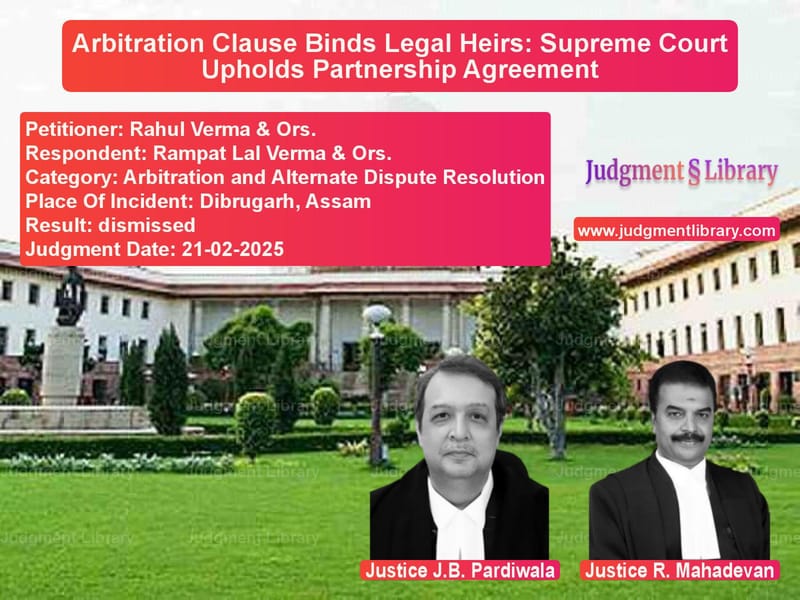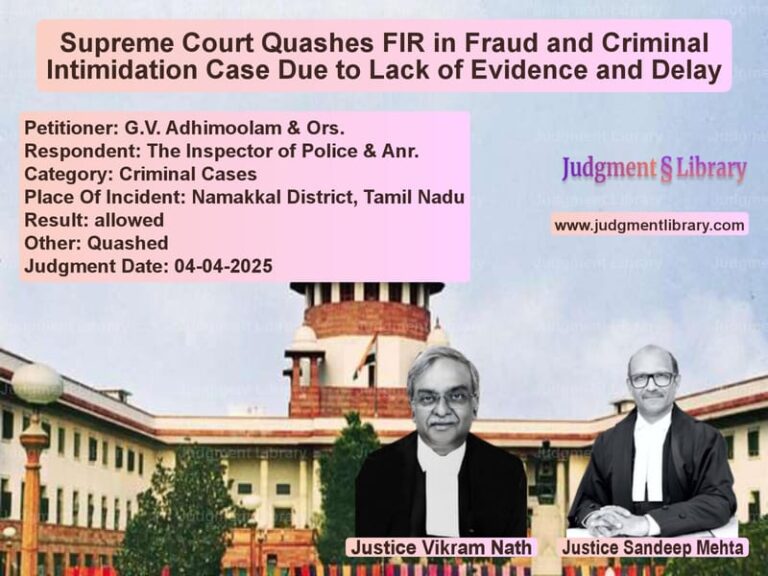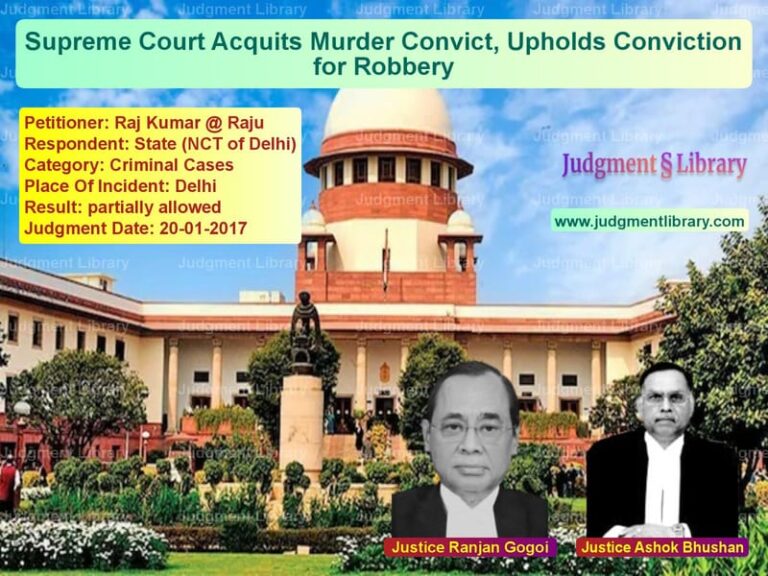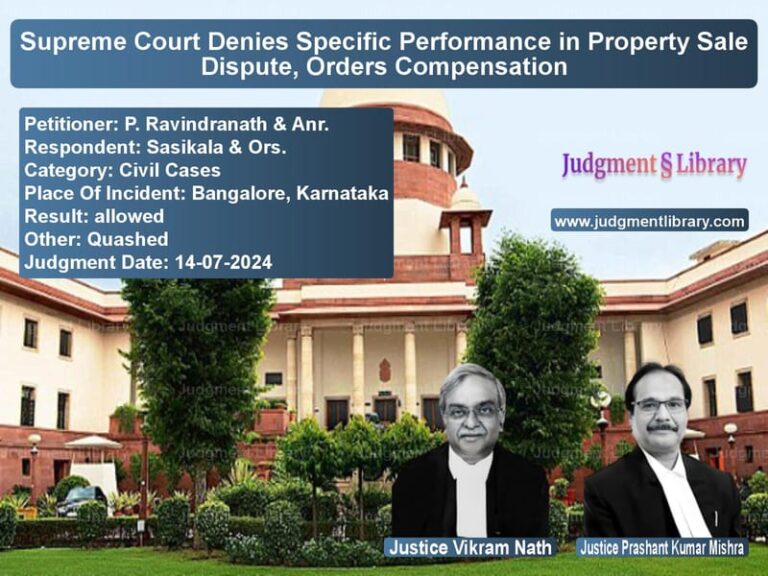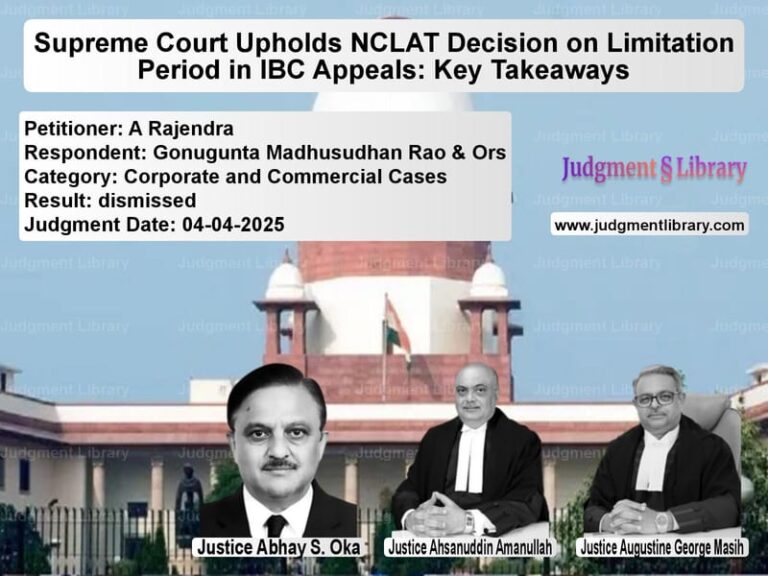Arbitration Clause Binds Legal Heirs: Supreme Court Upholds Partnership Agreement
The case of Rahul Verma & Ors. vs. Rampat Lal Verma & Ors. is a landmark ruling that clarifies the enforceability of arbitration clauses against legal heirs in partnership disputes. The Supreme Court upheld the validity of arbitration agreements, ruling that legal heirs of a deceased partner are bound by the arbitration clause in the partnership deed and must resolve disputes through arbitration.
Background of the Case
This dispute arose among legal heirs of deceased partners in a business partnership. The partnership firm consisted of three partners, two of whom passed away on December 24, 2022, and November 21, 2023, respectively. After their deaths, a disagreement emerged between the surviving partner and the heirs of the deceased partners regarding the firm’s dissolution and distribution of assets.
The key timeline of events is as follows:
- April 1, 1984: The original partnership agreement was executed.
- September 18, 1989: The partnership was reconstituted with additional clauses, including an arbitration clause.
- April 1, 1992: The partnership deed was amended, confirming that the firm would continue unless dissolved by mutual agreement.
- December 24, 2022, & November 21, 2023: Two of the three partners passed away.
- March 2024: The legal heirs of the deceased partners sought dissolution and demanded a share in the partnership assets.
- August 9, 2024: The Civil Judge (Sr. Div.), Dibrugarh, dismissed a petition seeking arbitration and allowed the commercial suit to proceed.
- October 22, 2024: The Gauhati High Court overturned the lower court’s ruling and referred the matter to arbitration.
- February 21, 2025: The Supreme Court upheld the High Court’s decision, confirming that the arbitration clause applies to the legal heirs.
Petitioners’ Arguments (Rahul Verma & Ors.)
The legal heirs of the deceased partners argued:
- They were not signatories to the partnership deed and, therefore, not bound by the arbitration agreement.
- The firm should have been dissolved upon the partners’ death, and the arbitration clause should not apply post-dissolution.
- Section 42(c) of the Partnership Act, 1932 dictates that a partnership dissolves upon the death of a partner unless otherwise agreed.
- They had the right to seek relief through a civil suit for rendition of accounts instead of arbitration.
Their counsel argued:
“An arbitration agreement cannot bind those who were not parties to it. Since the legal heirs did not consent to arbitration, they cannot be forced into it.”
Respondents’ Arguments (Rampat Lal Verma & Ors.)
The respondents, representing the surviving partner, contended:
- Clause 2 of the partnership deed expressly states that the firm would continue with the remaining partners and a legal heir of the deceased partner, if agreed.
- Clause 15 of the deed mandates arbitration for any dispute regarding dissolution or partnership affairs.
- The arbitration agreement survives the death of partners, as upheld in Ravi Prakash Goel v. Chandra Prakash Goel (2008) 13 SCC 667.
- Under Section 40 of the Arbitration and Conciliation Act, 1996, arbitration agreements remain enforceable even after the death of a signatory.
Their counsel argued:
“Legal representatives are bound by the terms of the agreement that governed the deceased partner’s interests, including the arbitration clause.”
Supreme Court’s Observations
The Supreme Court examined the legal framework surrounding arbitration in partnership disputes. The key observations included:
- The arbitration clause in Clause 15 of the partnership deed was binding on legal heirs as per Section 40 of the Arbitration and Conciliation Act, 1996.
- The firm’s governing clause (Clause 2) explicitly stated that the death of a partner would not dissolve the firm, meaning disputes should still be resolved through arbitration.
- Reliance was placed on Ravi Prakash Goel v. Chandra Prakash Goel (2008), which held that legal heirs step into the shoes of the deceased and are bound by arbitration agreements.
- Referring the matter to arbitration does not infringe upon the heirs’ rights; it simply ensures that disputes are resolved in the manner agreed upon by the original partners.
The Court ruled:
“An arbitration agreement does not cease to exist upon the death of a partner. The legal heirs of a deceased partner are bound by the arbitration clause and must resolve disputes accordingly.”
Final Judgment
The Supreme Court ruled:
- Dismissed the petition challenging arbitration and upheld the High Court’s decision.
- Confirmed that legal heirs must resolve disputes through arbitration.
- Clarified that the arbitration clause survives the death of a signatory partner.
The Court concluded:
“When a partnership deed explicitly provides for arbitration, its legal heirs are bound by the same. The dispute resolution mechanism chosen by the original partners must be upheld.”
Conclusion
This ruling establishes that:
- Arbitration clauses in partnership agreements are binding on legal heirs.
- Legal representatives must resolve disputes in accordance with the contract.
- The death of a partner does not automatically dissolve a firm if the deed states otherwise.
The Supreme Court’s decision ensures that business continuity and legal certainty are maintained in partnership firms, preventing unnecessary litigation and honoring the agreed dispute resolution process.
Petitioner Name: Rahul Verma & Ors..Respondent Name: Rampat Lal Verma & Ors..Judgment By: Justice J.B. Pardiwala, Justice R. Mahadevan.Place Of Incident: Dibrugarh, Assam.Judgment Date: 21-02-2025.
Don’t miss out on the full details! Download the complete judgment in PDF format below and gain valuable insights instantly!
Download Judgment: rahul-verma-&-ors.-vs-rampat-lal-verma-&-o-supreme-court-of-india-judgment-dated-21-02-2025.pdf
Directly Download Judgment: Directly download this Judgment
See all petitions in Arbitration Act
See all petitions in Commercial Arbitration
See all petitions in Enforcement of Awards
See all petitions in Institutional Arbitration
See all petitions in Dispute Resolution Mechanisms
See all petitions in Judgment by J.B. Pardiwala
See all petitions in Judgment by R. Mahadevan
See all petitions in dismissed
See all petitions in supreme court of India judgments February 2025
See all petitions in 2025 judgments
See all posts in Arbitration and Alternate Dispute Resolution Category
See all allowed petitions in Arbitration and Alternate Dispute Resolution Category
See all Dismissed petitions in Arbitration and Alternate Dispute Resolution Category
See all partially allowed petitions in Arbitration and Alternate Dispute Resolution Category

